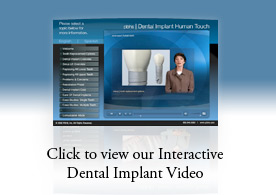- general information
- patient information
- Periodontal Overview
- ––––––––––––––––––––––––––––––––––
- Periodontal Disease and Heart Disease
- Diabetes and Periodontal Diseases
- Periodontal Disease Risk Factors
- Periodontal Complications
- Oral Cancer
- • Biopsy
- Maintaining Periodontal Health throughout a Woman's Lifetime
- Other Diseases and Their Relationship to Periodontal Disease
- Heart Disease: Precautions to be Taken Before Dental Treatment
- Poor Nutrition and Periodontal Disease
- ––––––––––––––––––––––––––––––––––
- What is "Good Oral Hygiene"?
- How to Brush
- How to Floss
- How to Care for Sensitive Teeth
- Hygiene Products
- • Toothbrush Care
- ––––––––––––––––––––––––––––––––––
- New Patient FAQs
- First Visits FAQs
- non-surgical periodontal care
- periodontal therapies
- Traditional Pocket Reduction Therapy
- • Bone Grafting
- ––––––––––––––––––––––––––––––––––
- PerioLase™ LANAP Therapy
- ––––––––––––––––––––––––––––––––––
- Cosmetic Surgery to Improve the Appearance of Your Smile
- • Crown Lengthening to Improve the Esthetics of Your Smile
- • Soft Tissue Grafting to Address Gingival Recession (Root Coverage Grafting)
- Platelet Rich Plasma (PRP)
- Crown Lengthening to Repair a Damaged Tooth
- Exposure / Bracketing of Impacted Tooth
- • Procedure Description for Exposure/Bracketing of Impacted Tooth
- ––––––––––––––––––––––––––––––––––
- Pocket Reduction Surgery FAQs
- Other Therapies FAQs
- dental implants
- Introduction to Dental Implants
- • Single Missing Tooth
- • Two or More Missing Teeth
- • Current Denture User
- • Benefits of Dental Implants
- ––––––––––––––––––––––––––––––––––
- CT Scanner & Comprehensive Implant Planning
- Conscious I.V. Sedation: Is It Right for You?
- ––––––––––––––––––––––––––––––––––
- Socket Preservation Techniques
- Ridge Augmentation and Bone Grafting
- Sinus Graft
- Platelet Rich Plasma
- Routine Implant Maintenance
- our doctors & staff
- office information






Home
Dental Implants
- Introduction to Dental Implants
- • Single Missing Tooth
- • Two or More Missing Teeth
- • Current Denture User
- • Benefits of Dental Implants
- CT Scanner & Comprehensive Implant Planning
- Conscious I.V. Sedation: Is It Right for You?
- Socket Preservation Techniques
- Ridge Augmentation and Bone Grafting
- Sinus Graft
- Platelet Rich Plasma
- Routine Implant Maintenance
Introduction to Dental Implants
Dental Implant Presentation
To provide you with a better understanding of dental implants, we have provided the following multimedia presentation. Many common questions pertaining to dental implants are discussed.
Having trouble? Please make sure you have the Adobe Flash Player plugin installed in order to correctly view this presentation. This software is available as a free download .
Did you realize that your confidence about your teeth and appearance affects how you feel about yourself, both personally and professionally? Perhaps you hide your smile because of spaces from missing teeth or feelings of insecurity because your dentures don't feel secure; maybe you have difficulty chewing.
A dental implant is an artificial tooth (a small titanium cylinder or screw that looks like a tooth root) that is placed into your jaw to hold a replacement tooth or bridge in place. While high-tech in nature, dental implants are actually more tooth-saving than traditional bridgework and since implants do not rely on neighboring teeth for support, you can preserve and protect your remaining natural teeth while implants support the crowns that replace your missing teeth. Dental implants can be so natural looking and feeling that you may forget you ever lost a tooth.
The number and position of implants needed in your case will be determined by which teeth are missing and where support will be needed. When one tooth is lost, a single restoration (crown) is used to replace the missing tooth – each prosthetic tooth attaches to its own implant. A fixed partial prosthesis (fixed bridge) can replace two or more teeth and may require only two or three implants where less than three teeth are missing. A complete dental prosthesis (fixed bridge) replaces all of the teeth in your upper or lower jaw and it can be planned to be a fixed restoration or a removable prosthesis. The number of implants varies depending upon which type of prosthesis (over denture or fixed bridge) and the condition of the teeth in the opposing arch. A removable prosthesis attaches to a bar or precision attachments, whereas a fixed prosthesis is permanent and removable only by the dentist.
Related Stories
Implants are a team effort between the Surgeon and the Restorative Dentist. While your Periodontist performs the actual implant surgery and any initial tooth extractions and bone grafting needed, your General Dentist fits and makes the permanent prosthesis. Your general dentist will also make any temporary prosthesis needed during the implant process. Depending on your specific condition and the type of implants and restorations that are chosen, you will be provided a treatment plan tailored to meet your needs.
Our doctors perform in-office implant surgery in a hospital-style operating suite, thus optimizing the level of sterility. Inpatient hospital implant surgery is reserved for patients who have special medical or anesthetic needs.
If you are missing one or more teeth and would like to smile, speak and eat again with comfort and confidence, we have good news for you! Dental implants can fill these missing spaces with teeth that can look and feel just like your own!
9398 Viscount Blvd, Suite 1-A | El Paso, TX 79925 | Tel 915-598-6702 | Fax 915-593-7478
Home | General Information | Patient Information | Non-Surgical Periodontal Care | Periodontal Therapies | Dental Implants | Our Doctors & Staff
Contact Us | Referring Doctors | Disclaimer | Sitemap | Periodontic Website Designby PBHS 2012©
